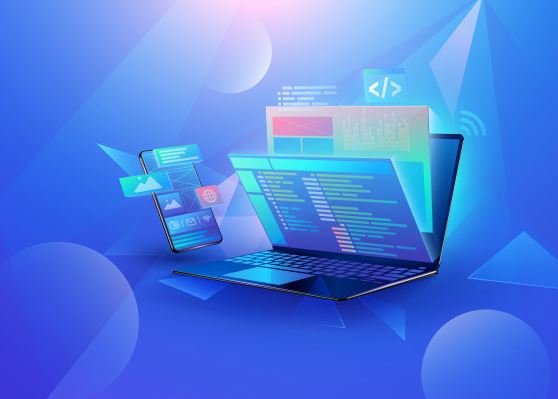The digital transformation in retail aims to reshape the business and provide a more innovative experience to consumers, increasing competitiveness in the sector through the digitalization of the purchase processes and means of payment.
 In addition, the customer service sector can be adapted to act in a more flexible and personalized way, according to the needs of the target audience of the business, wherever they are.
In addition, the customer service sector can be adapted to act in a more flexible and personalized way, according to the needs of the target audience of the business, wherever they are.
Therefore, in order to better understand what digital transformation is in retail and why this concept is so important, we have prepared this post with a series of useful information. Follow the reading of the content to learn more about the subject!
What is digital transformation in retail?
In a simplified way, it is a set of resources and methodologies that retailers use to implement technology in their businesses and expand the reach of the brand, optimize sales performance and ensure responses to the needs of the segment.
In other words, it is a structural change that occurs in companies from different market niches, including retail, making technological tools such as software, ERPs, the internet of things, and other trends integrate the daily processes of modern organizations.
Therefore, what was previously considered a competitive differential, today is the center of experience in constant evolution, focusing on customers and their satisfaction with the products and services they consume.
What are the main resources that digital transformation can offer to automate processes in retail?
There are numerous technologies created specifically to add competitive value to companies through the automation of everyday tasks and procedures. And now that you have a broader perspective on the digital transformation in retail, below we’ll show you some of the biggest trends in the industry today.
Cloud computing
Cloud Computing, as cloud computing is also known, is the basis of most current automation technologies, as it allows not only information, files and all types of data to be stored on virtual servers, but also for processes to be executed without the need for software to be physically installed on company machines.
It is thanks to cloud computing, for example, that data from all departments in an organization can be integrated into a single management system and shared among the professionals that make up the team, generating much more productivity and assertiveness to the business.
Management software
Nowadays, there is management software for the most varied commercial purposes. The vast majority of these tools are intended to automate everyday processes, especially those that are linked to financial activities and issues that require complex calculations to be done in detail.
Internet of Things
It’s the kind of technology that seems to have come out of a Black Mirror episode, so many people still believe it is too good to be true. However, the Internet of Things has already been part of the daily life of about 48% of companies around the world.
In a simplified way, it consists of connecting various electronic devices on the internet and controlling them centrally, anytime, and anywhere. In the business context, the IOT (Internet of Things), as it is also known, allows establishments to be monitored and controlled by their managers remotely.
Artificial intelligence
Another major trend in digital transformation for retail is artificial intelligence, yet another technology that seems to have emerged from a science fiction film, but which in reality has become an indispensable tool for the customer service and relationship sector. Artificial intelligence is the technology that brings chatbots, or service robots, to life. In turn, these robots allow organizations to keep the communications industry active with the customer full time. That is, operating 24 hours a day, every day of the week.
The solution has generated great impacts for retail in the digital scope and that is why more and more companies have invested in artificial intelligence to automate processes and provide a more positive consumer experience to their customers. Even they use AI-powered tools like Covve to improve their business network efficiently.
What positive impacts can the digital transformation in retail generate?
It is important that you know some of the biggest impacts that digital transformation can have on the retail sector. Among them, we can mention as main:
- increased process efficiency;
- optimization of the customer’s shopping experience;
- improving engagement between the consumer and the brand;
- increased competitive advantage for the company;
- promotion of the retail innovation concept;
- more credibility for the establishment in its sector of operation.
As you can see in this article, the digital transformation in retail is a rising trend. Comprised of innovative technologies such as artificial intelligence, cloud computing, and management software, the digitization of procedures and activities only adds to modern organizations.
Interesting Related Article: “Reasons Why Business Owners Need to Prepare for Digital Transformation“

